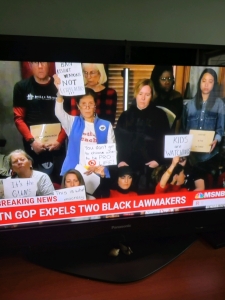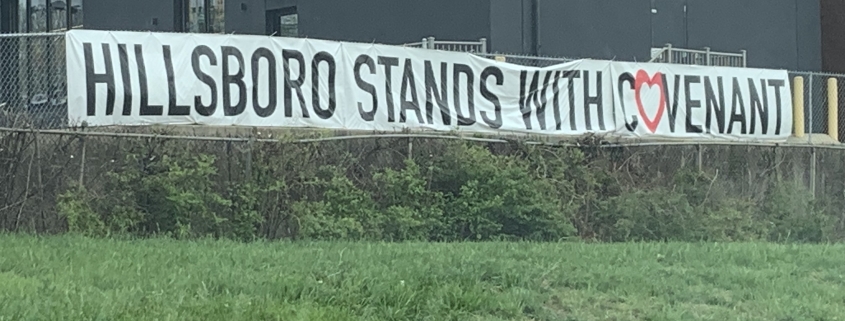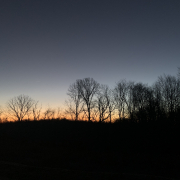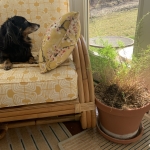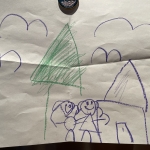The HOPE Special
I don’t think I could have done it. Not then, not so soon.
It would have been too painful to say the word “hope” just days after our community joined hundreds of others across America, paralyzed and grief-stricken. As we have watched in so many other cities and towns nationwide, a deranged, gun-laden shooter blasted her way into Covenant School in Nashville on March 27 and showered assault-style bullets into three nine-year-olds and three adult staff members before the police killed her.
Everyone knew someone who was impacted. It was inescapable. Someone was a cousin of one of the victims, their next-door neighbor, a student of the murdered head of school, a spouse of one of the first responders, a news anchor who had to stand in front of the cameras reporting on victims close to the ages of her own children. Tragedy converts a large city to a small community as quickly as an assault weapon ends lives. Many of us navigated those first days in a daze of horror.
And yet, sooner than it seemed possible, after just two or three settings of the sun, even in those bleary early days of shock, hope was sought, and was offered. In this particular case, it was a trade for hospitality and nourishment, with open acknowledgement of the natural trauma of any parent.
“It’s been a lot…. In honor of our daughter and all the kids growing up in this world today we’re offering the HOPE special for lunch. We cook, you say Hope then you eat, for free. Let’s strive to make the world the place our children deserve!”
That’s the Instagram post from a trendy Asian restaurant in East Nashville called Xiao Bao, just three days after the Covenant tragedy. And those generous proprietors stood alongside many others with hearts aching for the opportunity to do something. Along with the pain and the fear and the anger and the utter disgust, you could almost touch another element tightening the circles within circles. It wove its way into the bonds that form a community. Call it Hope, call it Love, call it Generosity…call it all those things, or anything you like. Along with the grief that settled over the city like the unsettled clouds of a spring storm, those unexpected forces also rooted and grew.
Nashville’s beloved Frist Art Museum offered two days of open doors, free to all, “Whether you need to gather with loved ones or visit alone, we hope the museum can provide some respite.” Less than 10 hours after the shooting, our church opened its doors to the community for a candlelight vigil of grief and acknowledgement. Local flower farm Apple & Dove, a small family enterprise, dropped a delivery of brilliant clumps of spring tulips in mason jars at a popular local produce market. Their bouquets normally get snatched up at prices that enable a small farm to survive, but these gorgeous emblems of spring’s arrival were free. “Our community is hurting..” said the sign on the shelf, inviting anyone who would take comfort from the beautiful offering to help themselves. 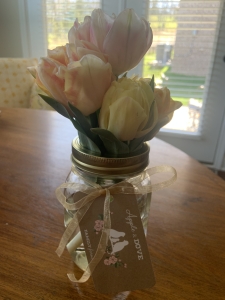
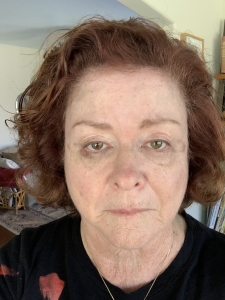
I took a bouquet and dashed out to my car, where I sobbed all the way home.
Why is it the signs of kindness that throw open the gates of emotion? The stories just kept coming.
“Magpies store was giving away pink headbands to girls going to Evelyn’s funeral (one of the nine-year-old victims). My niece who knew Evelyn’s mom was babysitting for kids of parents who knew the parents better than she did. Her husband was doing the same for a group of boys.” This so the adults could attend the funeral.
As the services for the victims began, signs of compassion and remarkable mercy continued to emerge. As reported in the New York Times, the husband of Covenant’s slain head of school reminded the community that all the families of the dead were suffering. “Dick Koonce delivered a eulogy on Wednesday for his wife, Katherine, who was killed in the shooting,” the Times reported. “ ‘Honoring Katherine compels us to remember a seventh family, equally wounded in the loss of someone dear to them,’ Mr. Koonce said, a reference to the family of the shooter. ‘We are trusting in the strong and loving embrace of a strong and loving God to take each of the seven that died and heal their wounds and their souls.’ ”
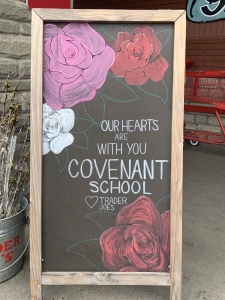
In neighborhoods across the city, the work continued: “ We all put pink ribbons on our mailboxes in (another victim’s) honor. Also held a candlelight vigil for her and her family on her street this week. Meal train sign-ups and $ contributions. Some friends/neighbors offered home rentals at no cost to house out of town families and also bedrooms in their homes for families in town. Card/ letter writings. We all feel we can’t do enough…”
“When you don’t know what to do, you do what you know,” said another loving and pragmatic friend, who made large bows in the red and black colors of Covenant School and attached them to mailboxes all up and down her street.
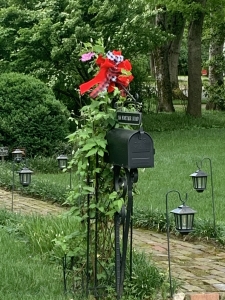
Others took to the streets to vent their grief and demand change in the time-honored American methods of protest. Group after group gathered at the Tennessee State Capitol, marching with signs held high, demanding legislators consider red-flag laws and restrictions on assault weapons. Doctors, teachers, law enforcement…most of all, I saw hope in the crowds of the high-school students who walked out of class to march at the capitol. Their young faces were ablaze with fear and anger—but I saw hope in their presence, in the evidence of their resolve.
We just passed the one-month anniversary of our shared tragedy. I look around with changed eyes at the hundreds of communities who have suffered similar nightmares and wonder how one nation can digest so much violence and heartbreak without making the sorts of changes that so clearly have alleviated this devastation elsewhere. In our great national shame and failure to protect our children, aren’t those of us who are silent also complicit? I have said little, done nothing, never even reviewed my electoral selections based on this issue. Like so many millions of others, I thought this battle could not be won, that the forces of evil that block lifesaving changes were too powerful and too sickeningly wealthy to defeat. And so I remained silent.
Perhaps that’s true—maybe it can’t be fixed after 20-plus years of murderous rampages in schools and elsewhere. But perhaps it isn’t. I look around again, and I think about those high-school students, those bows on the mailboxes, those flowers, those police officers begging for change, those physicians marching in lab coats. And I wonder if maybe enough hope, rising on the tide of tragedy, really could forge a different future. Save lives. Keep more families from the same agonizing losses.
The signs are out there, if we are willing to look, the signals that hope can rise alongside anger and grief and shame. Is it time to look in the mirror and see if we find hope looking back at us? Maybe, just maybe, the time is finally here when we, as parents and grandparents and friends and neighbors and citizens and voters, accept and act on our shared responsibility as an outgrowth of our unimaginable, colossal shared grief.
Maybe it’s time to have hope for lunch.
